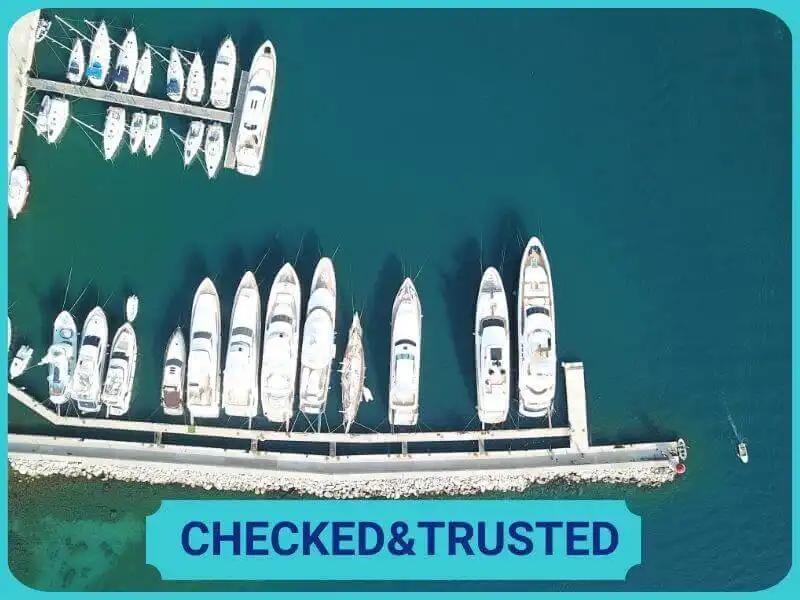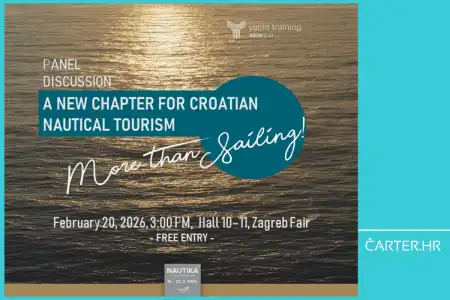
- 10.12.2024.
- News, Marketing, Regulations
The yacht charter industry is at a crossroads, grappling with economic uncertainty, shifting customer demands, and a need for greater trust and transparency. With some regions like Croatia struggling while others hold steady, the stakes have never been higher. Amidst the challenges, innovations like advanced payment protections and certification seals are making all the difference. Will industry adapt and thrive, or sink?
As the global economy experiences turbulence, the yacht charter industry is bracing itself for a period that demands careful attention and adaptability.
The past year has presented notable difficulties, especially in regions like Croatia, while other areas, such as the Baltics and the Balearic Islands, have managed to maintain relative stability.
The broader economic situation remains an uncertain factor, especially as charter companies and customers alike grapple with shifting market conditions.

A "mixed" year for European yacht charter regions
The 2024 season brought significant challenges to several popular yachting destinations.
Croatia, for example, experienced a notable decline in bookings during the summer peak, largely due to price increases in July and August. This led to last-minute price reductions in an effort to stimulate demand, creating concerns about the potential for a lower price baseline for 2025 bookings.
Even Greece, typically a strong in the yacht charter market, did not achieve the numbers seen in previous years.
In contrast, the Baltic region held steady, and the Balearic Islands successfully maintained last year’s levels, offering a glimmer of hope for other charter destinations. Nevertheless, the overall economic outlook—particularly in Central Europe—raises questions about future demand, with many fearing a possible downturn.
Yacht charter demand from Eastern European countries, on the other hand, has shown resilience, indicating that the industry can still rely on certain markets to offset regional difficulties.
Economic uncertainty and the rise of insolvencies
The economic climate, especially in Germany and Austria, has seen a sharp increase in insolvencies. This is a stark reminder that many companies in the yachting sector, like those in other industries, survived the economic shocks of the COVID-19 pandemic only due to government support.
With those safety nets now being withdrawn, the financial stability of businesses is under increasing scrutiny.
In such an environment, concerns about the reliability of yacht charter operators are growing. Recent high-profile cases of fraud within the sector—where customers lost deposits due to insolvency—have further heightened the need for greater security and transparency.
These incidents have not only hurt individual customers but have also impacted the reputation of the entire yacht charter industry, making it more critical than ever to rebuild trust.

Strengthening confidence with certification and security
As concerns about financial stability grow, initiatives like the CHECKED&TRUSTED quality seal are playing an important role in restoring customer confidence.
This certification has become one of the most important markers of reliability in the yacht charter industry, offering assurance of a company’s financial health and operational transparency.
Unlike other industry seals, CHECKED&TRUSTED is based on rigorous assessments of fleet operators' business practices, customer feedback, and, most crucially, their financial stability.
Fleet operators and yacht charter agencies carrying the CHECKED&TRUSTED seal have been verified as financially sound, and their certification helps to distinguish them in a competitive market. This also serves as a signal to customers that their bookings are secure and that they are dealing with reputable companies committed to providing quality service.
Preparing for 2025 - adapting to new realities
As the 2025 season approaches, yacht charter operators need to remain agile and responsive to the evolving market landscape. The lessons of 2024 highlight the importance of not only maintaining competitive pricing but also offering greater security and flexibility to customers.
Several innovative measures have been introduced to support both businesses and customers in this uncertain period. For instance, advanced payment protection plans, which guard against the risk of insolvency, have become increasingly vital.
Similarly, new insurance products, such as instant cancellation insurance (which includes pandemic-related disruptions), offer peace of mind in a world still grappling with the aftershocks of COVID-19.
Other programs, like the FLY&SAIL initiative, simplify the logistics of travel by allowing customers to book flights alongside their yacht reservations, with added security measures, such as guaranteed tickets and cancellation protection. These services provide added value to customers while strengthening the overall appeal of the yacht charter experience.
The launch of the New General Charter Terms for 2025 by the European Boating Industry (EBI) and the International Council of Marine Industry Associations (ICOMIA) marks another step towards industry standardization. This effort ensures greater clarity and fairness in the contractual relationships between yacht charter operators and their clients, which is crucial as the market navigates through these uncertain times.

Looking ahead - building trust and stability
While the yachting industry faces significant challenges in the coming years, there are clear pathways for maintaining stability and growth. Transparency, financial security, and customer trust will be essential for operators who wish to differentiate themselves in a crowded and increasingly cautious market.
As bookings for 2025 begin to pick up, fleet operators and agencies must prioritise these factors to stay competitive and retain customer loyalty.
Ultimately, while the future may be uncertain, the industry’s ability to adapt and innovate will be the key to its long-term success. By focusing on quality, security, and trust, the yacht charter sector can continue to thrive, even in challenging times.
Categories of trends
- News
- Sale
- Marketing
- SEO
- Web design
- Social media
- Technology
- Regulations
- Management
- Education
- Finances
- User experience
Newsletter
Sign up for the newsletter and receive the latest trends and tips straight to your inbox




